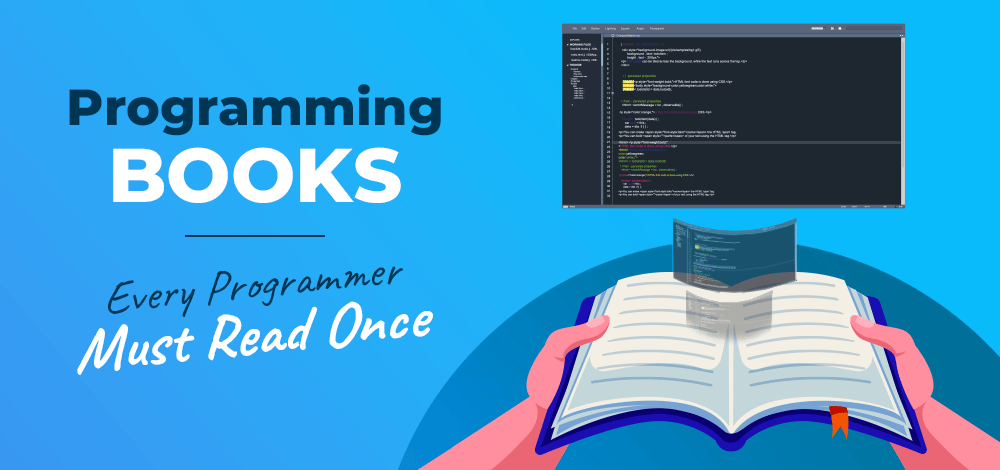The Best Programming Books You Should Read It !
Programming is a skill that can open up countless opportunities for personal and professional growth. With the ever-expanding landscape of technology and software development, it is essential for aspiring programmers and experienced professionals alike to keep their knowledge updated and stay ahead of the curve. In this article, we will discuss some of the best books on programming that will help you build a strong foundation and hone your skills.
1. Clean Code: A Handbook of Agile Software Craftsmanship by Robert C. Martin
Clean Code is a must-read for any programmer who wants to improve the quality of their code and make it more maintainable. The book emphasizes the importance of writing clean, efficient, and readable code. It teaches the principles of good software design, such as naming conventions, functions, formatting, and more, along with practical examples and case studies.
2. The Pragmatic Programmer: Your Journey to Mastery by Andrew Hunt and David Thomas
The Pragmatic Programmer is a classic programming book that focuses on the art of software development. It provides valuable advice on how to become a better programmer by adopting a pragmatic approach to problem-solving. The authors cover best practices, efficient techniques, and practical tips to help developers write high-quality code and increase their productivity.
3. You Don't Know JS (book series) by Kyle Simpson
You Don't Know JS is a comprehensive book series that dives deep into the fundamentals of JavaScript, one of the most popular programming languages. The series consists of six books, each focusing on different aspects of JavaScript, such as scope, closures, prototypes, asynchronous programming, and more. This series is perfect for developers looking to gain a deep understanding of JavaScript, regardless of their experience level.
4. Python Crash Course: A Hands-On, Project-Based Introduction to Programming by Eric Matthes
Python Crash Course is an excellent book for beginners who want to learn Python, one of the most versatile and widely used programming languages. The book starts with the basics and gradually moves on to more complex topics, making it easy to follow and understand. The project-based approach helps readers put their knowledge into practice by building real-world applications.
5. Cracking the Coding Interview: 189 Programming Questions and Solutions by Gayle Laakmann McDowell
Cracking the Coding Interview is a comprehensive guide to help software engineers prepare for technical interviews. The book covers essential topics such as data structures, algorithms, and problem-solving techniques, along with 189 programming questions and their solutions. The author's insights and tips on how to approach interviews and navigate the hiring process make this book a valuable resource for any aspiring programmer.
6. Design Patterns: Elements of Reusable Object-Oriented Software by Erich Gamma, Richard Helm, Ralph Johnson, and John Vlissides
Design Patterns is a seminal work in the field of software design and architecture. This book introduces 23 design patterns that help programmers solve common software design problems in a reusable and efficient manner. By understanding these patterns, developers can write more robust, maintainable, and scalable code.
7. Refactoring: Improving the Design of Existing Code by Martin Fowler
Refactoring is a vital skill for any programmer, as it enables them to improve the design of existing code without changing its behavior. In this book, Martin Fowler explains the principles of refactoring and provides a catalog of refactoring techniques. The book includes examples in Java, but the concepts can be applied to any object-oriented programming language.
8. Head First Design Patterns: A Brain-Friendly Guide by Eric Freeman, Elisabeth Robson, Bert Bates, and Kathy Sierra
Head First Design Patterns is a unique and engaging introduction to design patterns, using a visually rich format that makes learning fun and easy. The book covers the same 23 design patterns as the "Gang of Four" book (Design Patterns: Elements of Reusable Object-Oriented Software) but does so in a more approachable manner. The authors use real-world examples, analogies, and humor to drive home the concepts, making this book an excellent starting point for those new to design patterns.
These books are just a starting point in your journey to becoming a proficient programmer. As you continue to learn and grow, you'll encounter many more invaluable resources. But these books provide a solid foundation for anyone looking to improve their programming skills and understanding of software development.


